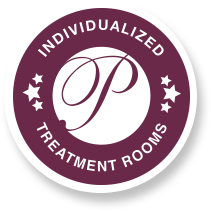Looking for a Dentist Near You That Treats Patients With Autism?
Autism spectrum disorder (ASD) is a complex neurodevelopmental condition characterized, in-part, by challenges in social interaction, communication, and performing repetitive behaviors. While dental health may not be the first concern associated with autism, it is an important aspect of overall well-being that can be significantly impacted.

It was with these challenges in mind that Dr. Paul Mathew decided to include sedation dentistry at his dental offices in Salem, NH and Newburport, MA. As a dentist specializing in sedation, he understands the challenges that people on the autism spectrum can have going to the dentist. Some of these challenges include fear of going to the dentist and discomfort during dental care.
Let’s dive into a comprehensive overview of the impact of autism on dental health and how dentists utilize sedation dentistry to treat patients with autism.
Impact of Autism on Dental Health:
There are many ways that living on the spectrum can impact oral health, some of which may not even be obvious at first. Combine several of these factors an maintaining oral health can be quite a challenge.
- Sensory Sensitivities: Many individuals with autism have heightened sensory sensitivities, which can include aversions to certain textures, tastes, or sensations. This can make brushing, flossing, and undergoing dental procedures uncomfortable or distressing.
- Difficulty with Routine Maintenance: Individuals with autism may struggle with establishing and maintaining daily oral hygiene routines due to challenges with executive functioning, sensory sensitivities, or difficulties with fine motor skills.
- Limited Communication: Communication difficulties associated with autism can make it challenging for individuals to express dental pain or discomfort. This can result in dental issues going unnoticed or untreated until they become more severe.
- Behavioral Challenges: Some individuals with autism may exhibit behaviors such as dental anxiety, resistance to sitting still, or difficulty following instructions, which can make dental visits and procedures more challenging.
- Dietary Habits: Certain dietary preferences or restrictions commonly observed in individuals with autism, such as a preference for soft or processed foods, can increase the risk of dental caries and other oral health issues.
- Bruxism and Oral Habits: Bruxism (teeth grinding) and other oral habits like teeth clenching or chewing on non-food items are relatively common among individuals with autism, which can lead to dental erosion, tooth wear, and other complications.
Sedation Dentistry for Patients with Autism
There are a few forms of sedation dentistry that are practiced in our Newburyport and Salem Dental offices. Sedation dentistry involves the use of medications to help patients relax during dental procedures, but we also like to think it involved having a warm, caring, and understanding attitude as well. It can be particularly beneficial for individuals with autism who may experience heightened anxiety when going to the dentist or sensory sensitivities in dental settings. Here’s how dentists use sedation dentistry to treat patients with autism:
- Anxiety Management: Sedatives can help reduce anxiety and promote relaxation, making it easier for individuals with autism to tolerate dental procedures. Additionally having experience working with a variety of patients with various backgrounds, needs, and sensitivities gives the required skill to manage situations and emotions.
- Enhanced Cooperation: Sedation can improve cooperation and compliance during dental visits, especially for individuals who struggle with sensory sensitivities, communication difficulties, or behavioral challenges.
- Increased Comfort: Sedation can alleviate discomfort and make the dental experience more comfortable for patients with autism, particularly those who may have difficulty sitting still or tolerating certain sensations. This enables even long and complex treatments such as smile makeovers or dental implants.
- Customized Approach: Dentists who specialize in treating patients with autism often take a personalized approach to sedation, considering each patient’s unique needs, medical history, and level of anxiety to determine the most appropriate sedation technique and dosage.
- Collaboration with Caregivers: Dentists may work closely with caregivers or other healthcare professionals involved in the patient’s care to ensure a coordinated approach to sedation and dental treatment.
Types of Sedation:
There are various levels of sedation used in dentistry, ranging from mild relaxation to deep sedation or general anesthesia. The choice of sedation method depends on factors such as the patient’s medical history, the complexity of the procedure, and the individual’s level of anxiety. Common types of sedation used in dentistry include:
- Nitrous Oxide (Laughing Gas): Nitrous oxide is a mild sedative administered through a mask placed over the nose. It induces a sense of relaxation and euphoria, making it suitable for patients with mild to moderate anxiety.
- Oral Sedation: Oral dental sedatives, such as benzodiazepines, can be taken in pill form before the dental appointment to induce relaxation and reduce anxiety. This method is often used for patients with moderate anxiety levels.
- Intravenous (IV) Sedation: IV sedation dentistry involves administering sedative medications directly into the bloodstream through a vein. It produces a deeper level of sedation than oral medications and is often used for patients undergoing more complex procedures or those with higher levels of anxiety.
- General Anesthesia: General anesthesia is a state of unconsciousness induced by medications, during which the patient is completely asleep and unaware of their surroundings. It is typically reserved for extensive dental procedures or patients with severe anxiety or special needs.
Considerations and Precautions:
Sedation dentistry can be highly beneficial for patients with autism and we’ve seen great success with it in both our Newburyport dental office and our Salem one. However, there are important considerations and precautions to ensure the safety and effectiveness of the treatment:
- Medical Evaluation: Before administering sedation, dentists conduct a thorough medical evaluation to assess the patient’s overall health, medication history, and any underlying medical conditions that may impact the choice of sedation or increase the risk of complications.
- Informed Consent: Dentists discuss the risks and benefits of sedation with patients and their caregivers, obtaining informed consent before proceeding with treatment.
- Monitoring and Safety Measures: During sedation, patients are closely monitored by trained dental professionals to ensure their safety and well-being. Vital signs such as heart rate, blood pressure, and oxygen saturation are continuously monitored throughout the procedure.
- Postoperative Care: After the procedure, patients are monitored during the recovery period until the effects of sedation wear off. Dentists provide instructions for postoperative care and may prescribe medications to manage any discomfort or side effects.
- Continued Oral Health Management: Sedation dentistry should be viewed as a tool to facilitate dental treatment, but it does not replace the importance of ongoing oral hygiene practices and regular dental check-ups for maintaining oral health.
Sedation dentistry offers a valuable solution for managing dental anxiety and promoting cooperation during dental procedures for individuals with autism. By employing a personalized approach to sedation and addressing the unique needs of each patient, our dental team can ensure a positive experience and help maintain optimal oral health for individuals on the autism spectrum. If you are a are a caregiver or a patient on the spectrum who would prefer sedation, we welcome you book an appointment at either or Newburyport or Salem dental offices.






